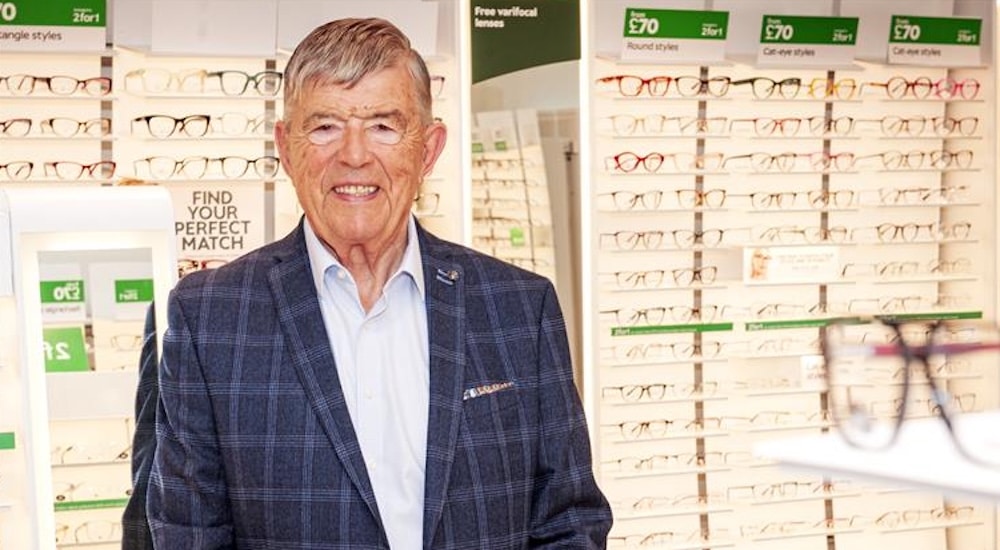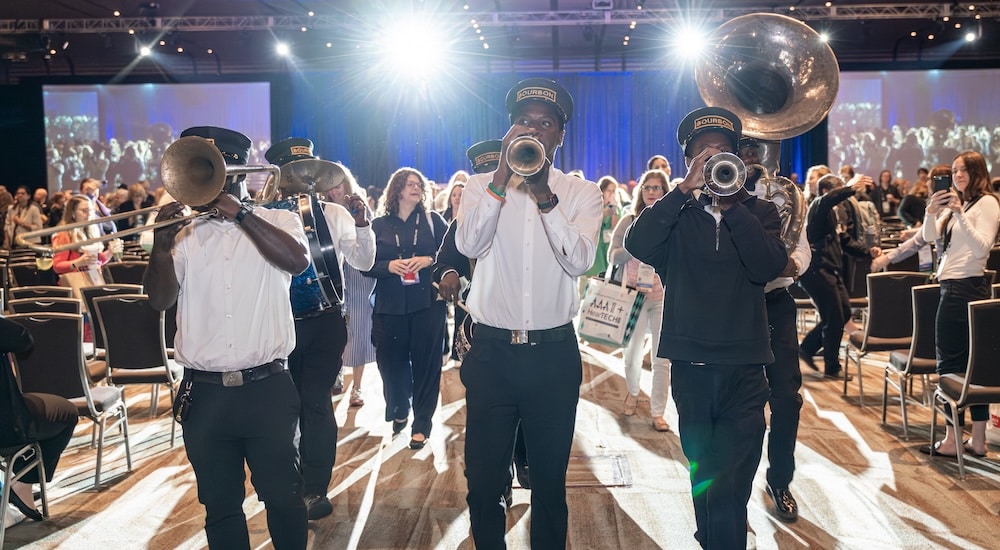"'We cannot do anything about your tinnitus'. This is simply not true"
“The biggest mistake is to maketinnitus patients believethere is nothing we can do”, saidDr Pawel J. Jastreboff, father and creator of the Tinnitus Retraining Therapy (TRT), interviewed by Audio Infos Spain.

Marking the 25th anniversary of one of the most successful tinnitus therapies, Tinnitus Retraining Therapy (TRT), Jastreboff, from Emory University (Altanta, U.S.), was in Spain last fall to take part in the “Tinnitus andits treatment with hearing aids” congress, organized by GAES as part of the National Congress of the Spanish Society of Otolaryngology and cervicofacial pathologies (SEORL).The event was attended by over 200 professionals and was an opportunity to stress the need to address this condition with every available method, given that it affects 4 million people in Spain.
Pawel J. Jastreboff. It is a matter of retraining the brain. To help patients understand this, I often use the following example. You have learned to drive on the right. Now imagine that you move to New Zealand for work, and you have to learn to drive on the left. You would be a dangerous driver because, even though you would be fully aware of what you need to do, you would not manage because driving is controlled by your subconscious brain. However, you can teach your brain to drive on the left and after a while, you will be able to do it perfectly well. The problem with tinnitus is that the signal originates in the auditory system and then spreads to the limbic system. TRT tries to retrain the brain by limiting the connections between the auditory system and the other systems of the brain so that the signals are restricted to the auditory system and do not contaminate the others.

Audio Infos. How did you build this model?
P.J.J. It was by chance. I was studying the ear, balance and the cerebellum. I went to Yale University to study the mechanisms of the sense of smell and after one year, a young researcher asked me to help design an animal model to improve tinnitus. I thought this was impossible, because if we were unable to ascertain evidence of tinnitus in human beings, how could we do so in rats? I shared my concerns about his approach, and suggested we could get results with a behavioral method. He said “here is the money, here is the lab, go ahead”. So I did.
A.I. The first step was to delve into the world of tinnitus.
P.J.J. I knew nothing about this, other than that my grandmother suffered from it, and that she was always complaining because it was annoying. While I was working on the model to learn more about tinnitus, I read a lot of literature. The information I found was very unclear, but there was a common dogma: tinnitus is located in the ear and the auditory nerve. I thought this literature was completely wrong because to find the cause of tinnitus, you have to look at the brain, and not the ear. I designed a practical implementation of my model, which is now known as TRT. I discussed it with Dr Hazell, an eminent expert in this field who resided in London, and he liked it so much that he started using it the following Monday. The results were so positive that I set up a center in the U.S. to treat tinnitus, and to date I have treated over 2,000 patients with very positive results.
A.I. So it was an instant success
P.J.J. Well, actually, the scientific results of my model only became evident after eight years. I had already been treating patients, but a positron emission tomography (PET) study was published verifying the model. The study demonstrated that the limbic system, i.e., the emotional center of the brain, of people suffering from tinnitus is overactive. This came as a surprise to many, because it proved that tinnitus had nothing to do with the auditory canal, but rather that it involved other parts of the brain. This was obvious to me, but not so much for my colleagues at the time.
A.I. So the mistake resided in where tinnitus was thought to originate?
P.J.J. Before TRT, the only therapy available was maskers, which consisted in using sounds to cover up tinnitus. This is still efficient in approximately 10% of patients. In fact, Dr. Hessel had conducted a study with a group of patients which demonstrated that maskers worked, but that as soon as the therapy concluded, most patients felt worse. There were some 30 patients who had been using the technique for 15 years and had seen no improvement. When Dr. Hessel started using TRT on these patients, they improved considerably in just one year, and complained that he had not used this method before. The answer was simple: TRT did not exist ten years ago.
A.I. How does it work?
P.J.J. We teach it as an intensive, three-day course. It consists of a part which involves offering specific advice, to teach people that tinnitus is not something negative; the other part is sound therapy. In the guidance part, we demystify it by clarifying any doubts patients may have. It is very important to offer examples from daily life, and not to talk in scientific terms. An example which works well is to imagine that there is a two-meter cobra in the room which behaves well, has eaten, and its venom has been removed, which means patients do not need to worry, and can focus on me. When I ask them if they believe they can do it, the answer is “absolutely not”, because when there is something in the room which indicates danger, one cannot help but focus all his or her attention on it. Then I tell them that from the beginning it was only a toy snake, that there was no danger, and that despite that, they experienced negative sensations.
A.I. And the same happens with tinnitus?
P.J.J. Absolutely. Most patients associate it with something negative, probably because they have all seen many doctors, and they have all been told that nothing can be done, that they simply have to learn to live with it for the rest of their lives, that there is no “cure” for it. I know a patient who had been told that he had tinnitus because he had a defective brain, and he was absolutely devastated. It took me nearly a year to help him feel better. Throughout the world, ENTs and other healthcare professionals alike, psychologists for example, always say the same thing: “We cannot do anything about it, you will have to learn to live with it for the rest of your life.” This is simply not true. Tinnitus is not something negative, it does not indicate that there is a problem in your brain, nor that you are going to wind up deaf. It is like having a plastic gun to your head, it looks dangerous but it is not. Even when patients know the snake is a toy, whenever it moves they will be startled, because the unconscious brain is the first to react. First we have the instinct to run, and then comes the instinct to think.

A.I. It must be very difficult to re-educate your subconscious.
P.J.J. As behavioral psychology shows, learning is easier than re-learning. Even if you know there is no danger, it will take some time to not be startled anymore. My goal is to explain how unconscious reflexes work through examples, to help them understand how we sometimes react when faced with something which seems dangerous and is not.
A.I. It is not really an act of faith then?
P.J.J. No, faith would only lead to unsustainable results, it would be nothing more than a placebo. You have to prove to patients that it is possible through real-life.
A.I. Sound is also very important in TRT.Is silence the greatest enemy?
P.J.J. Sound therapy is a very important part of TRT, but it must go hand in hand with good counseling. Studies have shown that using sound exclusively is only effective in 20% of cases. Sound therapy is very useful, but it is important to know exactly how to conduct it.
A.I. The success of the therapy has led to it being used throughout the world…
P.J.J. TRT is being used in 35 countries. In Spain, Dr Lorenzo Rubio, among many other professionals, has been using it. Some years ago, centers were established but now it is less present. I specialize in second opinions, so I sometimes see cases from Spain, and I must admit, I am not happy with what I see.
A.I. What elements of the approach used in Spain are wrong?
P.J.J. First of all, as in many other countries, the idea that we cannot do anything to help our patients still persists. Secondly, the use of hearing aids. Thirdly, the use of psychotropic medication.
A.I. Do you not approve of the use of hearing aids in tackling tinnitus?
P.J.J. In recent years we have developed very good hearing aids which integrate a sound generator, which can be very efficient and useful, but patients need to know how to use them. Even the hearing aids for tinnitus patients should be different from others.
In fact, in my clinic in Maryland I am using combined devices and we have had very good results. However, these should not be used as a stand alone solution but rather as part of a program. With hearing aids alone, the success rate is around 10%. When combined with TRT, this figure reaches up to 80%. Without a good understanding of how to use them and appropriate guidance, it is highly unlikely that they will provide satisfactory results
A.I. Audiologists, then, play an important role…
P.J.J. They can be very important, and should work as part of a team. In Spain, they should work hand in hand with ENT specialists, in order to combine their expertise, because they each master one specific aspect of the therapy. We have done training courses in India and in Holland, and very often, we have audiologists, ENT doctors and psychologists, because it is very important that all three talk the same language to address a case correctly. ENT doctors do not have enough time to provide adequate guidance, and this is true throughout the world.
A.I. Are there any common characteristics in the 80% of patients who do experience improvement with TRT?
P.J.J. What is interesting with TRT is that it does not try to solve tinnitus based on its root cause, but rather works on the connections between the auditory system and the other parts of the brain. That is precisely why it is it can be successful in any number of people, without them having any common characteristics or traits.
A.I. But there are still 20% of patients for whom it does not work…
P.J.J. 82% of patients experienceclear improvement, but approximately 90% of patients report a certain improvement. Regarding the remaining 10%, I have learned to predict when TRT will or will not be successful. First, there is a group of patients who use tinnitus as a means of getting social attention, who need to feel victimized, and will never get better because they do not want to put an end to what makes them special. The second group are those who take large doses of benzodiazepines. These drugs reduce the plasticity of the brain and this makes it very difficult to change the connections. A third of my patients take benzodiazepines, because 70% of patients who suffer from tinnitus have sleep problems, and ENT doctors prescribe them as if they were sleeping pills. When patients are on doses of 1 to1.5 mg per day, I try to convince them to stop taking them altogether in the second phase of the TRT. But if they take 2 mg or more, I know it is very difficult for the TRT to work. Lastly, there is a group of patients who do not want to get better for financial reasons, so that they can receive healthcare benefits, after a car accident, for example.
A.I. Can the first results be felt after only six months?
P.J.J. In the 1990s, when we first started, the average time to start feeling results was a year; now it is a month. That being said, some people improve after only three days, whereas for others it can take three months. So as to prevent relapses, I recommend the therapy last nine months. In the 2,000 patients I have treated, I have seen only very few relapses, often triggered by a traffic accident or breast cancer, etc.
A.I. What do you think of other techniques, such as CI or stress control, to address tinnitus?
P.J.J. Stress control is useful insofar as it reduces the reactions a person can have to tinnitus. It does not limit the phenomenon, but it helps patients control their reactions to it. Cochlear implants and electric stimuli in the ear can work for 40% of patients, but 5-7% can experience a worsening of the condition. With such variable results, it is currently forbidden in the U.S. to use CI for patients who suffer exclusively from tinnitus.
A.I. What does it feel like to be the father of a therapy which has changed so many lives?
P.J.J. I feel happy and satisfied to know that I am helping people lead a normal life, when they were not able to do so before, and also that my students are also able to help in the same way. Once I received a $150 cheque from somebody I did not know, who was in fact a patient of one of my students. This person apologized for sending so little money but insisted that he needed to send it to me as a thank you for how much the therapy had helped him.
Main conclusions on TRT
The conference entitled “25 years of Tinnitus Retraining Therapy (TRT): theory and practice” was the flagship presentation of the GAES symposium at the Spanish National Congress of ENT doctors, and attracted over two hundred participants to the Hotel Meliá Castilla in Madrid. In it, Professor Pawel J. Jastreboff presented his conclusions about the therapy that made him the leading expert in this specialty:
- over 80% of patients suffering from tinnitus experience significant improvement after 12 months
- these results cannot be explained by a placebo effect
- never give “negative advice”
- never leave a person suffering from tinnitus in silence
- never use unpleasant sounds, sounds that are perceived as annoying or as causing a discomfort for sound therapy
- it is important to establish a clear diagnosis of hyperacusis or misophonia because they will be treated in very different ways
- TRT offers a framework (philosophy) to treat tinnitus, sound intolerance (hyperacusis and misophonia), hearing loss and the tensor tympani syndrome


